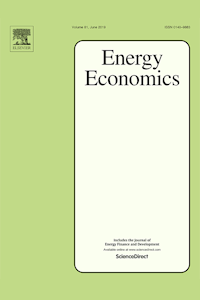
Cashin, P., Mohaddes, K., Raissi, M.
The differential effects of oil demand and supply shocks on the global economy
Energy Economics
Vol. 44 pp. 113-134 (2014)
Abstract: We employ a set of sign restrictions on the impulse responses of a Global VAR model, estimated for 38 countries/regions over the period 1979Q2–2011Q2, as well as bounds on impact price elasticities of oil supply and oil demand to discriminate between supply-driven and demand-driven oil-price shocks, and to study the time profile of their macroeconomic effects across a wide range of countries and real/financial variables. We show that the above identification scheme can greatly benefit from the cross-sectional dimension of the GVAR—by providing a large number of additional cross-country sign restrictions and hence reducing the set of admissible models. The results indicate that the economic consequences of a supply-driven oil-price shock are very different from those of an oil-demand shock driven by global economic activity, and vary for oil-importing countries compared to energy exporters. While oil importers typically face a long-lived fall in economic activity in response to a supply-driven surge in oil prices, the impact is positive for energy-exporting countries that possess large proven oil/gas reserves. However, in response to an oil-demand disturbance, almost all countries in our sample experience long-run inflationary pressures, an increase in real output, a rise in interest rates, and a fall in equity prices.
Keywords: GlobalVAR(GVAR), Interconnectedness, Global macroeconomicmodeling, Sign restrictions, Impulse responses, International business cycle, Oil-demand and oil supply shocks
JEL Codes: C32, E17, F44, F47, Q41
Author links: Kamiar Mohaddes
Publisher's Link: http://dx.doi.org/10.1016/j.eneco.2014.03.014 ![]()
